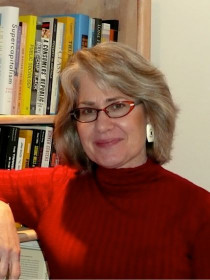Connect with Kim
About Kim
Voss studies labor, social movements, and social inequality. Much of her recent research has explored the politics of the American labor movement, particularly the prospects for its renewal. In earlier work, she studied the Knights of Labor – the largest American union organization of the nineteenth century – to shed light on the question of why the U.S. labor movement has traditionally been weak and politically conservative in comparison to labor movements in Western Europe. Voss also researches inequality and is currently at work on a project comparing how white and Latino immigrant workers understand their place in American society. Voss has been interviewed by radio stations in California and New York, and has appeared on the PBS News Hour. She has spoken to union groups in America, Canada, and Norway. She is an affiliate of the Institute for Research on Labor and Employment at the University of California, Berkeley and the Interuniversity Research Centre on Globalization and Work based at the University of Montreal, Université Laval and HEC Montreal.
